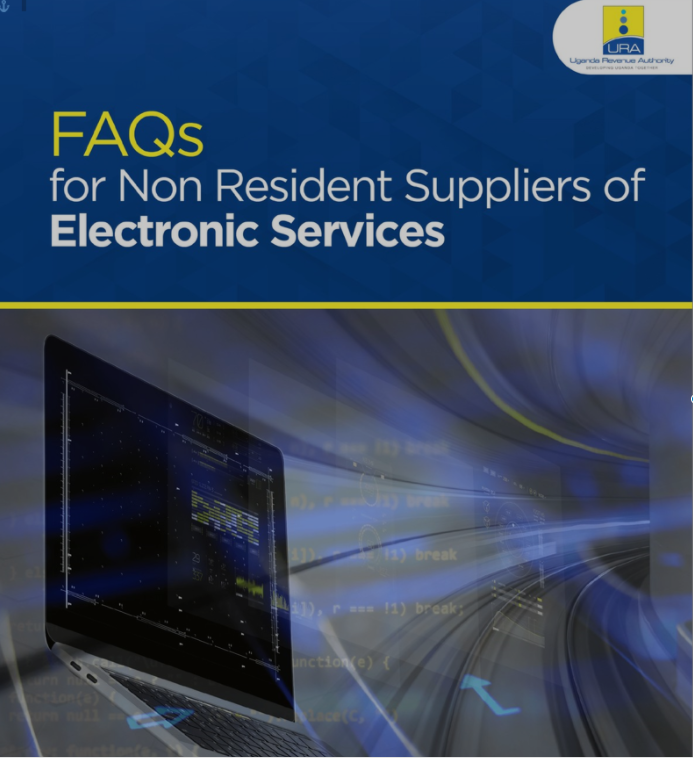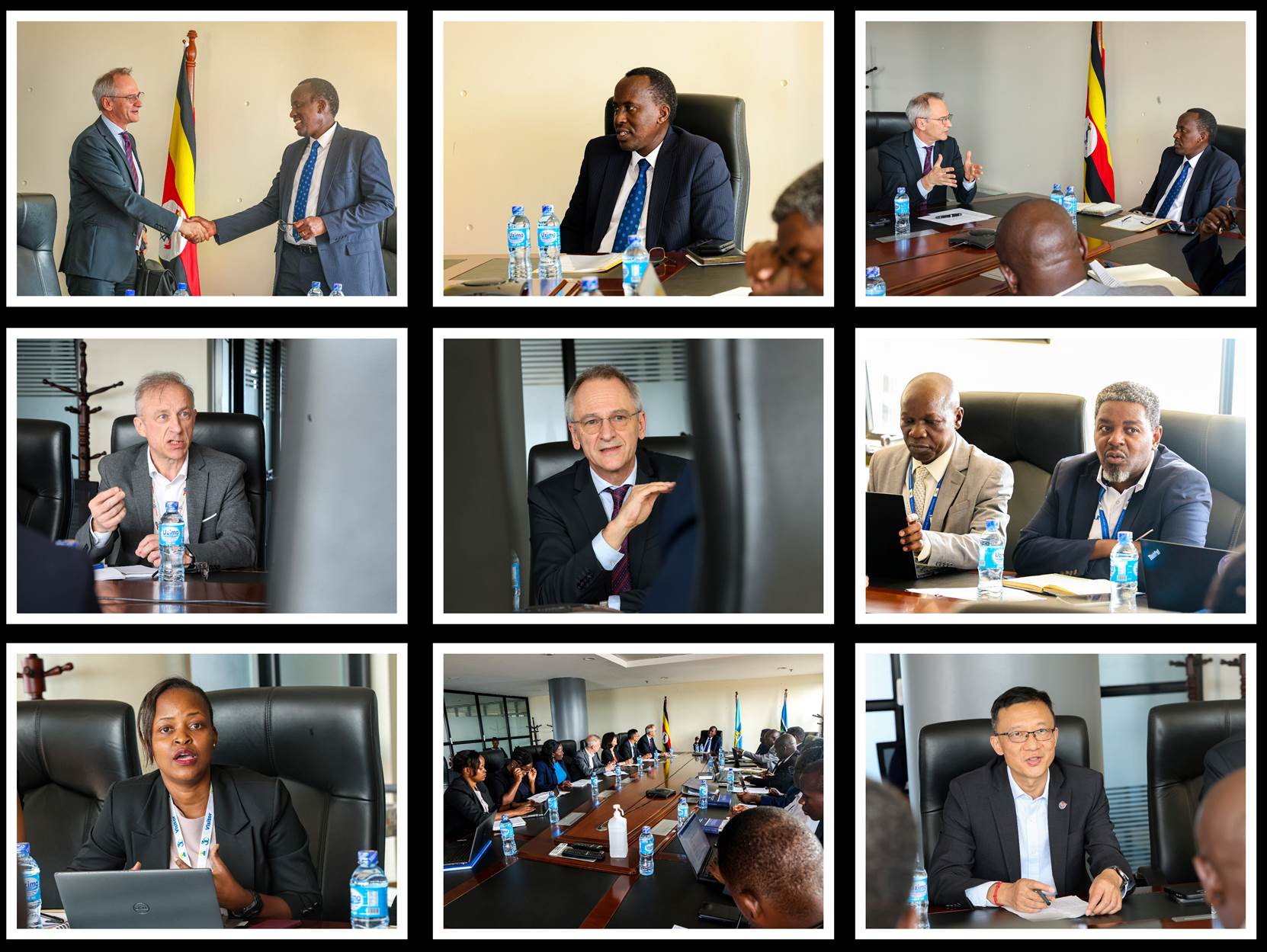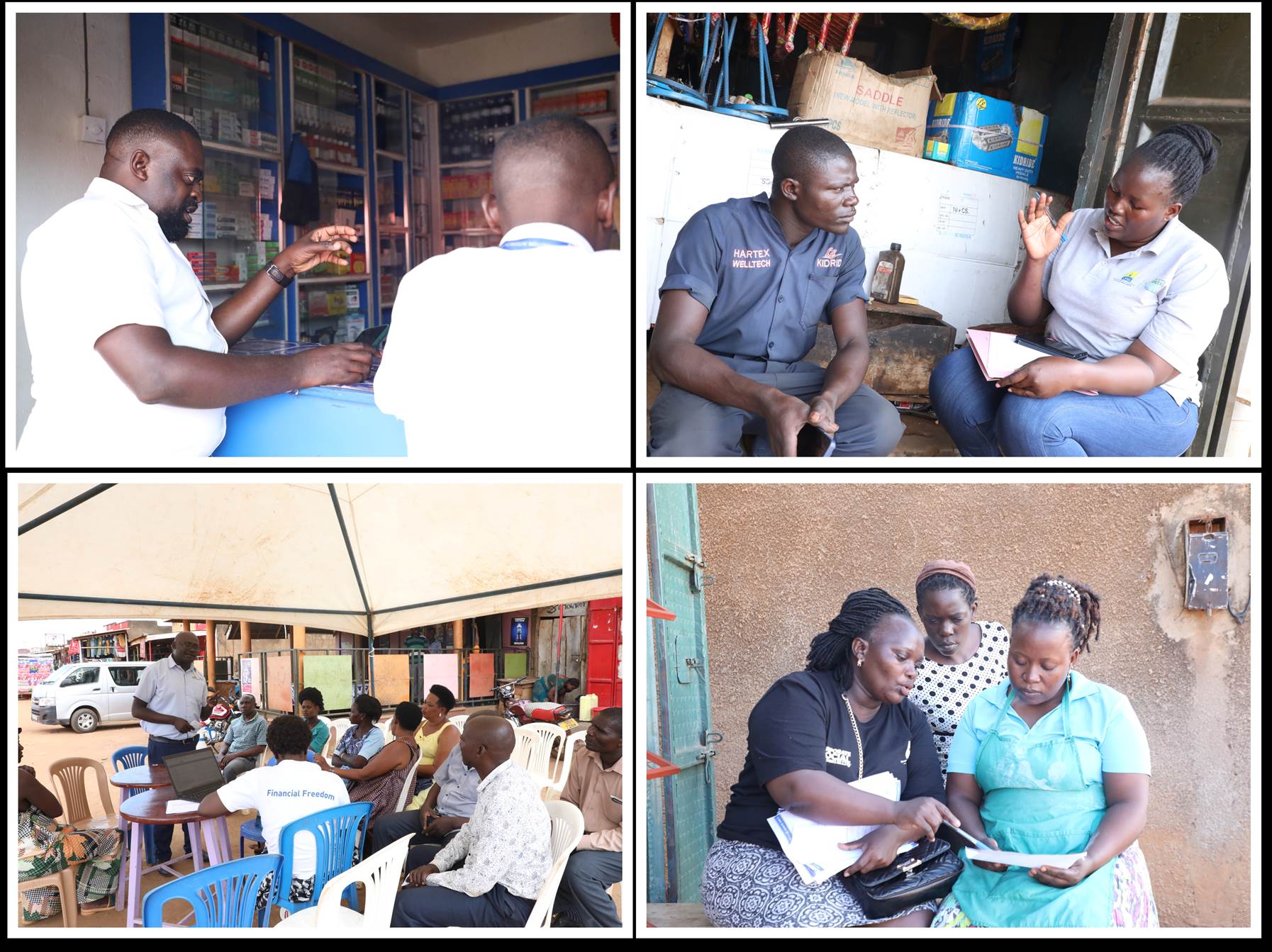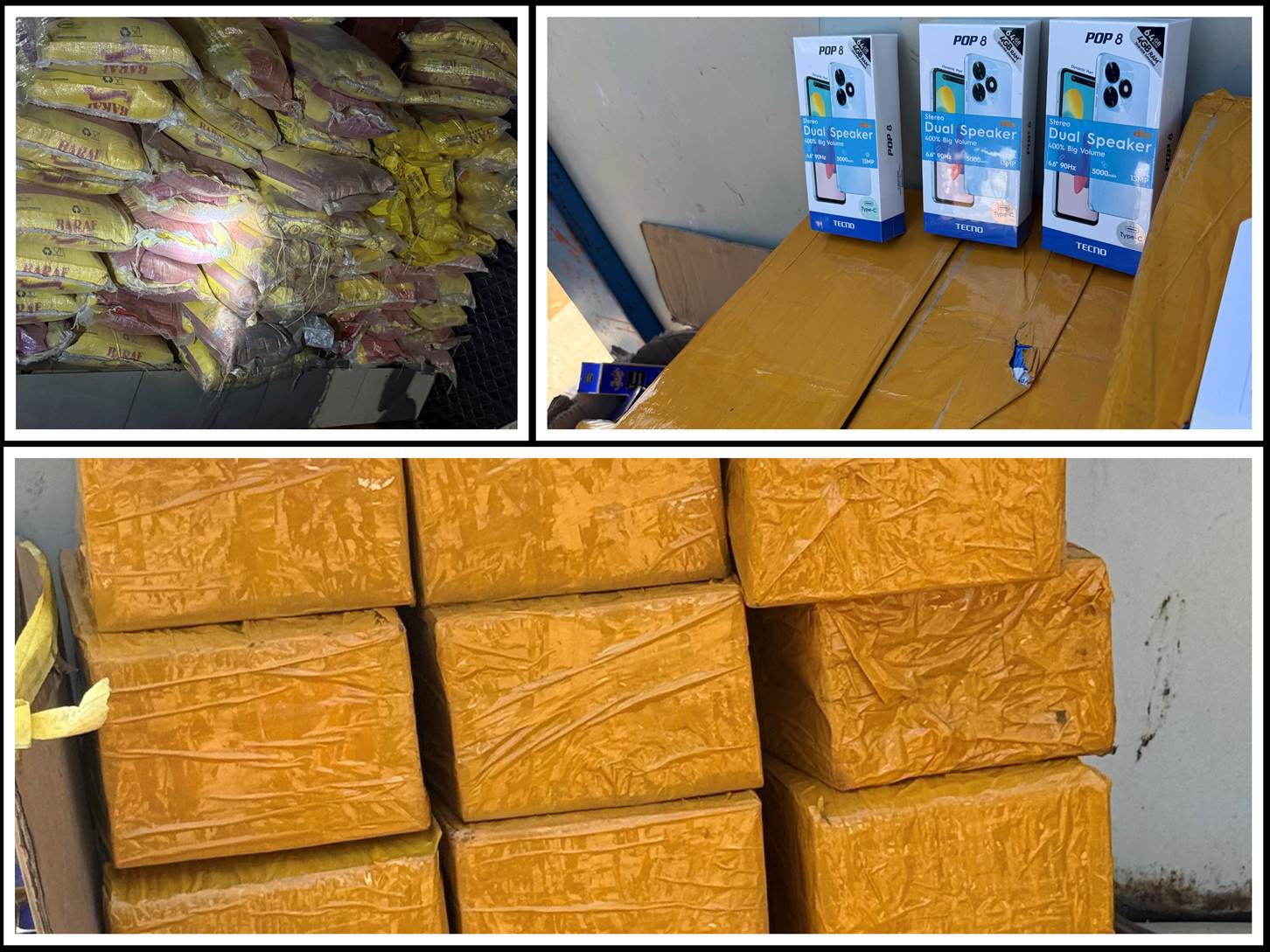Electronic services include the following, when provided or delivered remotely –
(i) Websites, web-hosting or remote maintenance of programs and equipment;
(ii) Software and the updating of software;
(iii) Images, text and information;
(iv) Access to databases;
(v) Self-education packages;
(vi) Music, films and games including games of chance; or
(vii) Political, cultural, artistic, sporting, scientific and other broadcasts and events including television
Note: The above list is not exhaustive and other services listed below are included;
(i) Online advertising services
(ii) Provision of access to online platforms
(iii) Online video streaming services
(iv) Any other electronic services provided remotely
A non-resident person supplying electronic services from a country outside Uganda to a recipient not registered for VAT in Uganda.
To register for VAT, the non-resident will follow the steps below;
• Visit the URA web portal http://ura.go.ug
• Select e-Services
• Select Payments
• Select Quarterly VAT Return for Non-Resident Service Providers
• Select No if you do not have a TIN and follow the steps for registration.
The information required for registration shall include—
• the name of the business including the registered business’s trading and legal name
• entity type e.g. company, partnership, international or diplomatic organization, non- government organization, trust etc
• Business registration number
• Establishment date for the entity
• Country where business is located
• Business activity description e.g. online video streaming, online shopping, online books, application stores etc.
• Business classification e.g. services, wholesale, education, manufacturing
• Business postal address or registered address of the business and its contact person;
• The name of the authorized contact person responsible for tax matters, their telephone number and email address
• Supporting documents such as the certificate of incorporation or registration issued to the business in the country where the business is incorporated.
(Upon completion and submission of the form, a Tax Identification Number (TIN) is issued instantly to the non-resident provider.
Yes, to register for VAT, a non-resident supplier should meet the VAT registration threshold of Uganda shillings thirty seven million and five hundred thousand (UGX 37,500,000) approximately USD 10,000 in a period of three consecutive months.
Once the non-resident supplier meets the threshold in any three-calendar month period (quarter) in the Financial Year (1st July to 30th June), they will remain registered for all subsequent quarters.
• Where the electronic services supplied are below the required registration threshold, the non- resident supplier may apply for voluntary registration.
• Where there is reason to believe that in the next quarter, the value of the supplies will exceed the VAT registration threshold, the non-resident supplier is required to notify the Commissioner General and register for VAT.
For example, in the quarter from January to March, the supplies of electronic services to non- registered persons may be UGX 36 million but the non-resident supplier has reason to believe that they will be UGX 40 million in the next quarter of April to June; the non-resident supplier is required to register for VAT at the beginning of April.
A non-resident supplier supplying electronic services to a non-taxable person in Uganda shall submit a quarterly return in the prescribed form and pay the VAT due on supplies made to all non-taxable persons in Uganda within fifteen days from the end of each quarter.
To file for the non-resident VAT return and make payment:
• Visit the URA web portal http://ura.go.ug
• Select e-Services
• Select Payments
• Select Quarterly VAT Return for Non-Resident Service Providers
• Fill in the online return form and submit it upon which a payment will be automatically generated
• The non-resident will proceed to pay the tax within fifteen days from the end of each quarter using EFT, RTGS, SWIFT, VISA, MasterCard, American Express and Union Pay
For further inquiries contact us at quarterlyreturns@ura.go.ug
Yes, they are.
• Non-resident suppliers are required to declare total sales made for both B2B and B2C supplies on aggregate basis in a given quarter in the VAT return
• In respect to B2B supplies, there is no requirement for the non-resident supplier to account for the tax on these supplies but rather they have to share transactional information related to these supplies with URA within 30 days after the end of a quarter. This information will include:
i. The name of the recipient;
ii. TIN of the recipient if available;
iii. Date of the transaction;
iv. Nature of the supply e.g. online advertising;
v. Value of the transaction;
vi. Invoice number of the transaction.
For the B2C transaction details the following is the information detail required;
i. The name & TIN of the recipient or any other identifying information;
ii. Date of the transaction;
iii. Nature of the supply e.g. online advertising;
iv. Value of the transaction;
v. Invoice number of the transaction
In order to ease this process, non-resident suppliers have been provided with an API document to enable their systems share directly with the URA databases this transactional level information.
The Commissioner General shall, upon request by a non-resident supplier accept other electronic formats for sharing the transactional level details within 30 days after the end of the relevant quarter to which the VAT return relates.
The non-resident supplier is required to share transactional information related to the supplies with URA within 30 days after the end of a quarter.
A non-resident supplier can amend or adjust a filed or submitted return.
A non-resident supplier of electronic services may apply online through their tax account to the Commissioner General for permission to submit a return after the due date with a justifiable reason. However, this is subject to the discretion of the Commissioner General.
• A non-resident supplier of electronic services will account for output VAT when payment for the services is made or a tax invoice is issued.
• A non-resident supplier is required to account for output VAT on electronic services supplied by filing a return within fifteen days from the end of each quarter.
A deduction of input tax by a supplier shall not be allowed in respect of supplies made by a non- resident supplier supplying electronic services.
Electronic services are supplied to a non-taxable person in Uganda if any one or more of the following apply: –
(a) the recipient of the supply resides in Uganda;
(b) the recipient of the supply of electronic services has either a business, residential or postal address, internet proxy address or phone number in Uganda;
(c) the payment for the services is made to the supplier in the export/foreign country from a financial institution registered in Uganda under the Financial Institutions Act; or
(d) the payment for the services that is made to the supplier in the export country is authorized in Uganda under any law.
All payments of tax are made in Uganda Shillings (UGX) .Modifications to pay in other currencies may be considered in the future.
Non- resident suppliers of electronic services may account for VAT on invoice or cash basis.
However, non- resident suppliers of electronic services must apply to the commissioner to allow them account on cash basis
Non- resident suppliers of electronic services should issue simplified tax invoices to non-registered clients in Uganda which must include commercial name, address, taxpayer identification number of the non-resident supplier, date the invoice is issued, description of the goods, quantity of the goods and value of the supply inclusive of tax and the statement that tax is included in the price.
Note: Generally, non-resident suppliers of electronic services issue receipts to clients in place of tax invoices. As long as the receipts bear the above, they will be deemed to conform to the requirements of a simplified tax invoice.
Non- resident suppliers of electronic services are not required to issue fiscalised invoices.
VAT registration status of a taxpayer can be verified through searching the TIN details of a taxpayer at the URA portal after registration. In order to ease this process, non-resident suppliers have been provided with an API document to enable their systems crosscheck directly from the URA databases on the customer registration status.
Supplies that are exempt from VAT in Uganda are specifically listed under the Second Schedule to the VAT Act.
An imported service will be treated as an exempt supply if the service would be exempt had it been supplied in Uganda.
Where a non- resident supplier requires confirmation that a supply of electronic services is exempt, they may request for a written ruling or guidance from the Commissioner General
This is not a mandatory requirement; however, a non-resident supplier may appoint a tax agent or a tax representative for purposes of fulfilling their tax obligations in Uganda
Yes, there is a dedicated team available to support non-resident electronic service suppliers in meeting their tax obligations in Uganda.
In case of any clarifications on registration, returns and any other clarifications concerning non- resident suppliers of electronic services contacts us at quarterlyreturns@ura.go.ug
URA encourages all non-resident suppliers of electronic services to embrace voluntary compliance with their tax obligations in Uganda. URA commits to continuously engage, assist and facilitate all non-resident suppliers of electronic services to enable them comply with their tax obligations in time and correctly.
In the event of non-compliance, the VAT Act and Tax Procedures Code Act provide for an exhaustive penalty regime for non-compliance. The penalty regime also applies to non-resident suppliers of electronic services.
All non-resident suppliers of electronic services are required to maintain records that support the transaction data in any format including electronic format for a period of five years in the terms of the Tax Procedure’s Code Act
No, a non-resident supplier is not required to have a bank guarantee for purposes of implementing the VAT regime.











